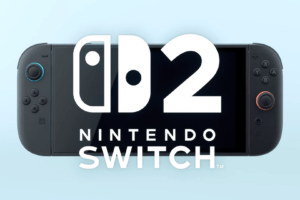The release of Star Wars Battlefront II in 2017 was a saga filled with more drama than a Skywalker family reunion. A core element of the controversy surrounded loot boxes, a monetization mechanic that sparked outrage from gamers and regulators alike. Let’s delve into the Battlefront II loot box fiasco, the reasons behind the backlash, and the valuable lessons it offers for game developers and publishers regarding monetization practices.
The Friction Caused by Frictionless Progression (or Lack Thereof)
Star Wars Battlefront II offered iconic heroes like Luke Skywalker and Darth Vader. However, players weren’t able to unlock them directly through gameplay – they were locked within loot boxes obtainable through in-game currency or real-world money. This meant that paying extra could significantly accelerate a player’s progress, creating a “pay-to-win” scenario. Here’s why this rubbed gamers the wrong way:
- Erosion of a Sense of Achievement: Earning powerful characters through gameplay is a core part of the satisfaction in many games. Loot boxes undermined this by introducing an element of chance and potentially placing an advantage in the hands of spenders.
- Predatory Practices: Critics argued that the system preyed on players, especially younger audiences, who might be enticed to spend real money to unlock desired content quickly.
- A Broken Progression System: The core gameplay loop felt designed to push players towards loot boxes, hindering the intrinsic enjoyment of playing the game itself.

The Result: A Galactic-Sized Backlash
The loot box system in Battlefront II ignited a firestorm of criticism. Here’s what transpired:
- Record-Breaking Dislike: A post by EA attempting to defend the system became the most downvoted comment in Reddit history, highlighting the depth of player discontent.
- Regulatory Scrutiny: The controversy sparked discussions about loot boxes potentially constituting gambling, leading to increased scrutiny from regulatory bodies worldwide.
- Sales Shortfall: The negative sentiment surrounding loot boxes likely contributed to the game falling short of sales expectations.
Lessons Learned: A New Hope for Monetization
The Battlefront II loot box controversy serves as a cautionary tale for the video game industry. Here are some key takeaways for developers and publishers:
- Prioritize Fair and Engaging Gameplay: Monetization strategies should complement, not overshadow, the core gameplay experience. Players should feel rewarded for their time and skill, not pressured to spend money to progress.
- Transparency is Key: Be upfront about monetization mechanics. Clearly explain what players can expect from in-game purchases and loot box contents.
- Offer Meaningful Choices: Provide players with diverse ways to progress and access content, including free and paid options. These options should not create an unfair advantage for those who spend money.
Looking Ahead: A More Balanced Approach
The Star Wars Battlefront II loot box controversy forced the gaming industry to re-evaluate its monetization practices. We’re now seeing a shift towards more player-friendly approaches:
- Focus on Cosmetics: Many games prioritize selling cosmetic items like character skins and weapon attachments, allowing players to personalize their experience without affecting gameplay balance.
- Season Pass Evolution: Season passes, offering additional content for a fixed price, are evolving to provide a clearer value proposition for players.
- Subscription Models: Subscription-based models offering access to a library of games or exclusive content are gaining traction, providing players with a predictable cost structure.
Conclusion: A Victory for Gamers
The Star Wars Battlefront II loot box controversy serves as a watershed moment for the video game industry. It highlighted the importance of prioritizing player experience and fostering a sense of fairness. By learning from these missteps, developers and publishers can create a more sustainable and ethical approach to monetization, ensuring a future where both gamers and the industry can thrive.
















Add Comment